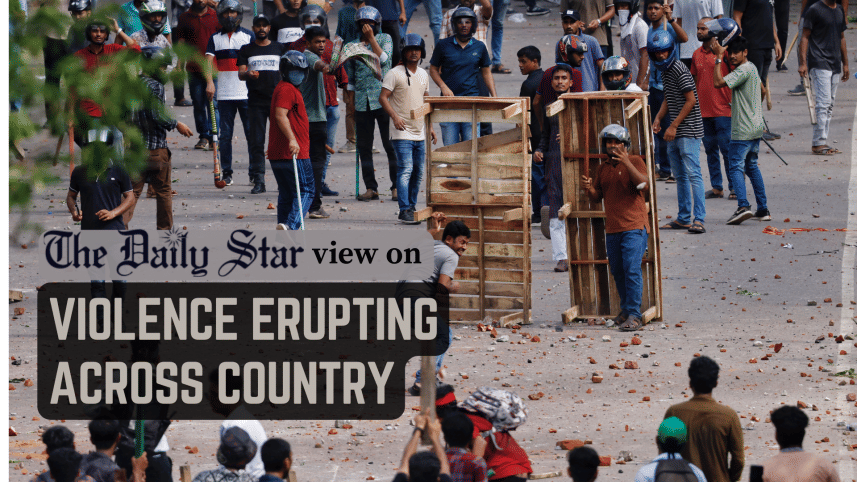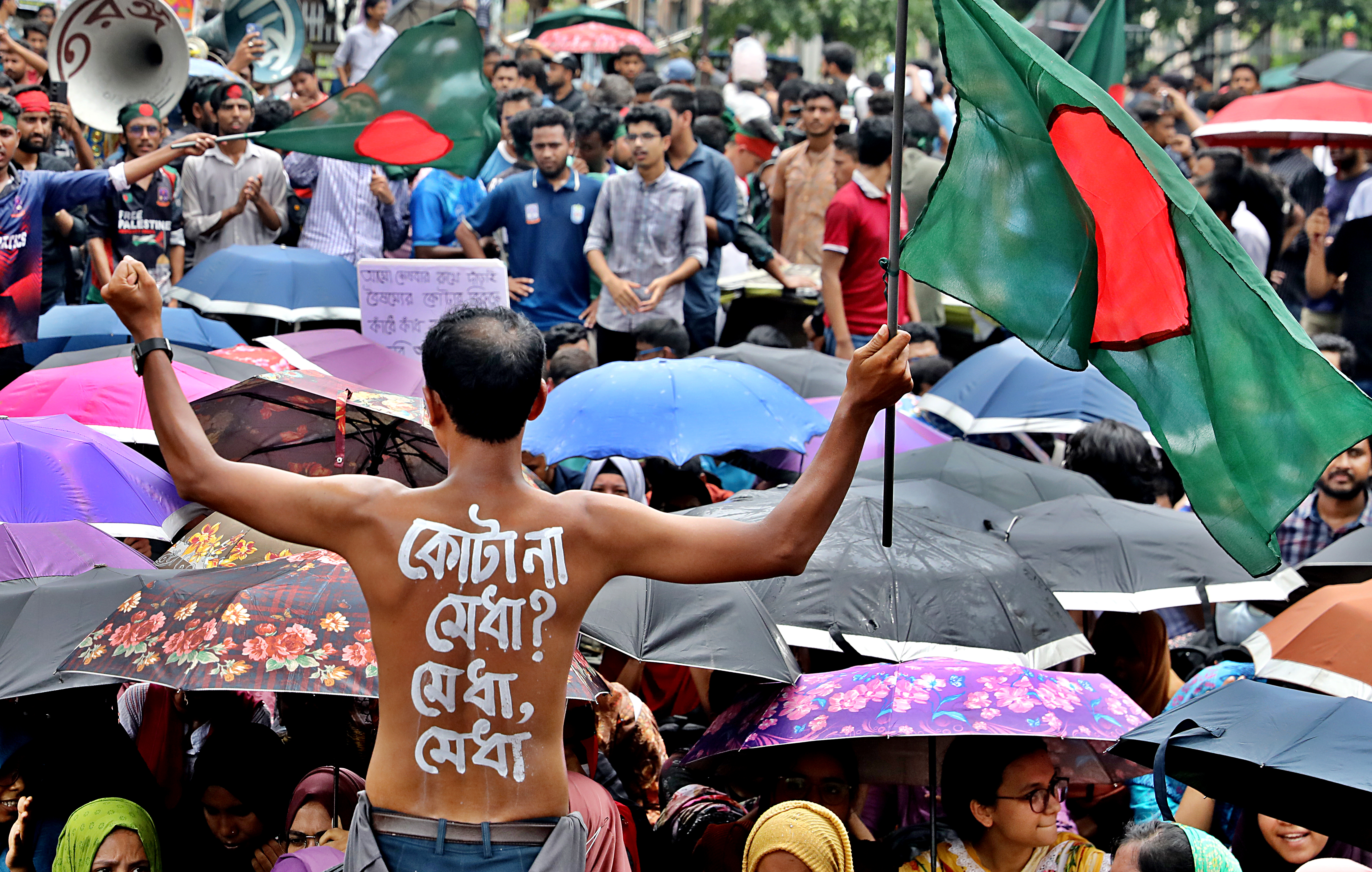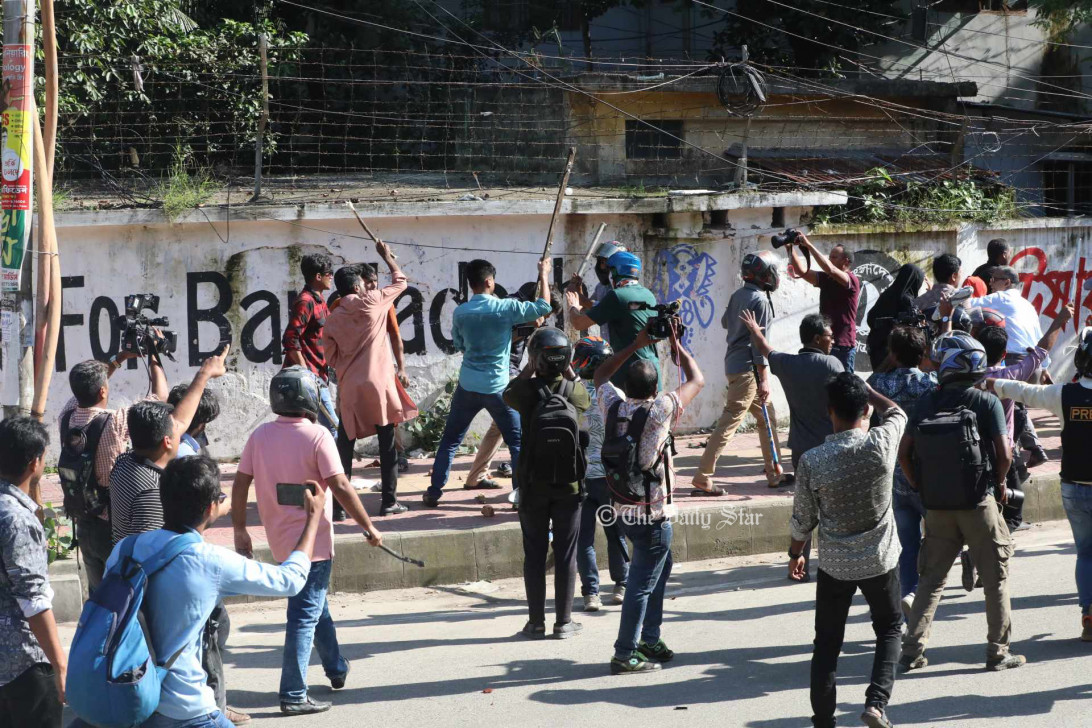Stop this violence before more lives are lost

We are horrified by the atrocious violence carried out by the members of Bangladesh Chhatra League (BCL) across campuses and on streets in Bangladesh over the past 48 hours in the name of teaching anti-quota dissenters a "lesson". Countless protesters have been injured in the attacks that show no signs of abating, and as of writing this editorial, at least six individuals have died during clashes. We urge the government to immediately stop this bloodbath before any more loss of lives and a complete breakdown of law and order.
On Tuesday, both protests and attacks escalated, spreading across the country. Along with public university students, students from some private universities and even schools and colleges too joined hands to protest BCL's attacks on the previous day. Science Lab in Dhaka turned into a warzone for most of the day, with chases and counter-chases between students and BCL leading to at least a hundred individuals getting injured. The situation in Rangpur and Chattogram were also very volatile, with clashes leading to at least one death in Rangpur and three in Chattogram. A number of students were also reportedly shot.
These attacks began on Monday when Dhaka University turned into a bloody battlefield for over five hours. According to media reports, BCL men, armed with sticks and rods, swooped upon students who had gathered to protest what they called a "disparaging comment" by the prime minister. Their brutality did not stop with injuring over 300 students, many of whom were women; they stormed into DMCH's emergency department in the evening and beat protesters again, causing unimaginable panic among critically-ill patients who had come for emergency treatment. At midnight and early morning on Tuesday, they continued their mayhem across other campuses. During these clashes, lethal weapons including machete and petrol bombs have been used.
It is unimaginable that such violence could take place with impunity, without any attempt by law enforcement agencies to stop them from happening—not even when it took place in the biggest public hospital in the country. Are we to assume that our law enforcers are helpless in the face of BCL's wrath, or that BCL is now an armed extension of the state machinery? Even if we assume that the protesters were in the wrong and needed to be apprehended, what legal or constitutional mandate does a student wing have to carry out such attacks? While the home minister had previously warned of police action against quota protesters if they crossed the line, he seems to now see no excesses in BCL's actions, which are directly undermining the role of his ministry and that of law enforcers. In fact, he has gone so far as to dismiss the ongoing violence as mere "difference of opinion" between opposing groups.
By allowing and enabling such attacks, the government is essentially pushing the protesters to a point of no return, which can have disastrous consequences for the country and its citizens. It must act as a government should—sensitive to citizens' needs and demands. It has to take stern action against those carrying out attacks against members of the public and making a mockery of the democratic and constitutional processes that we fought the Liberation War for.
The government should realise that the ongoing protests are more than just about quotas—they signify a deep sense of dissatisfaction among the youth about the way the country currently operates. The way out is to hear the students' concerns and engage them in dialogue, not to allow violence inflicted upon them, which can only exacerbate their frustrations against the status quo.



 For all latest news, follow The Daily Star's Google News channel.
For all latest news, follow The Daily Star's Google News channel. 


Comments